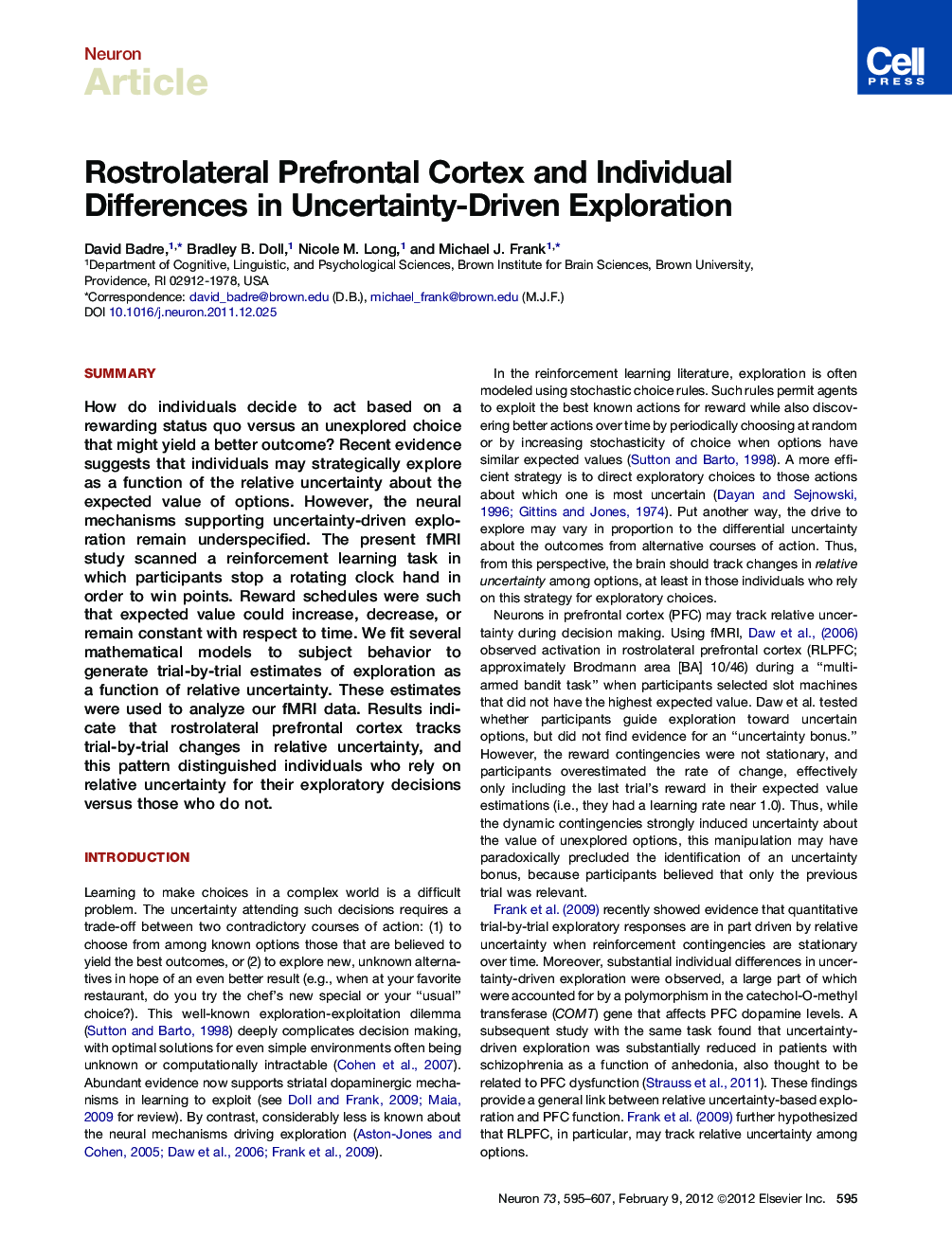| Article ID | Journal | Published Year | Pages | File Type |
|---|---|---|---|---|
| 4321499 | Neuron | 2012 | 13 Pages |
SummaryHow do individuals decide to act based on a rewarding status quo versus an unexplored choice that might yield a better outcome? Recent evidence suggests that individuals may strategically explore as a function of the relative uncertainty about the expected value of options. However, the neural mechanisms supporting uncertainty-driven exploration remain underspecified. The present fMRI study scanned a reinforcement learning task in which participants stop a rotating clock hand in order to win points. Reward schedules were such that expected value could increase, decrease, or remain constant with respect to time. We fit several mathematical models to subject behavior to generate trial-by-trial estimates of exploration as a function of relative uncertainty. These estimates were used to analyze our fMRI data. Results indicate that rostrolateral prefrontal cortex tracks trial-by-trial changes in relative uncertainty, and this pattern distinguished individuals who rely on relative uncertainty for their exploratory decisions versus those who do not.Video Abstract To view the video inline, enable JavaScript on your browser. However, you can download and view the video by clicking on the icon belowHelp with MP4 filesOptionsDownload video (17874 K)
► RLPFC tracks trial-by-trial estimates of relative uncertainty ► RLPFC tracks relative uncertainty in people who employ uncertainty-driven exploration ► Relative uncertainty effects hold even when removing the effect of mean uncertainty ► DLPFC tracks mean uncertainty about in all individuals
